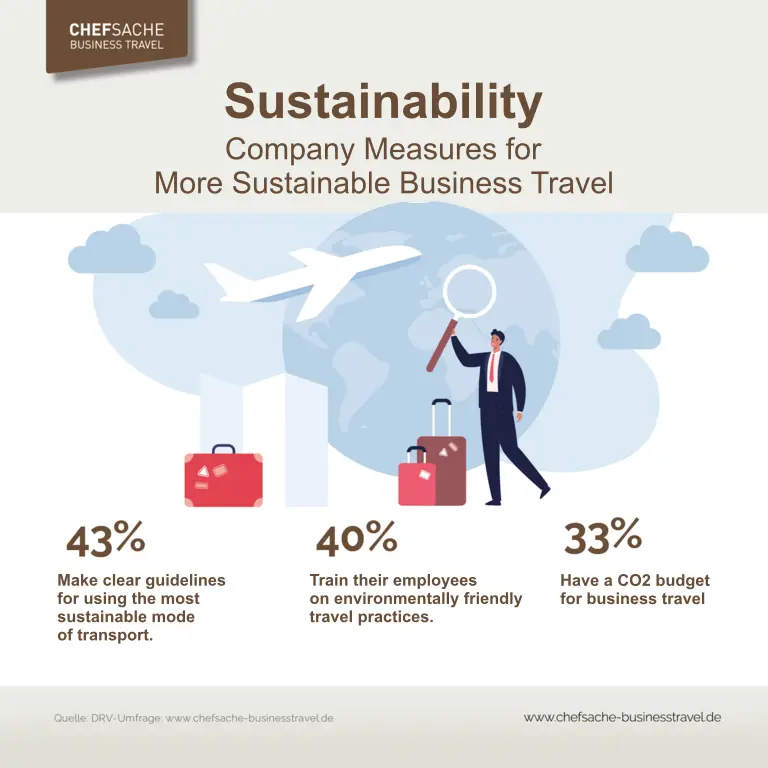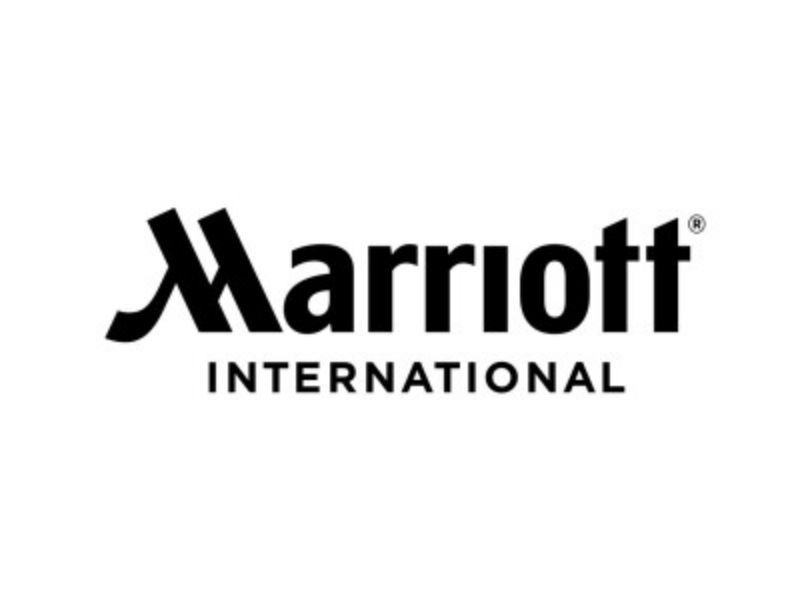Starting this year, German companies must disclose their business travel emissions in their sustainability reports.
Nine out of ten companies are preparing for this reporting requirement.
However, only about one-third of German companies have set CO2 limits for business travel.
Less than half of the companies recommend using sustainable transportation options. Yet, 41 percent of employees want travel budgets to reflect environmental impacts. These findings come from the “Chefsache Business Travel” survey commissioned by the German Travel Association.
The Corporate Sustainability Reporting Directive (CSRD) emphasizes the need for companies to report business travel emissions. These trips significantly contribute to greenhouse gas emissions, which companies must disclose as Scope-3 emissions.
“Companies are responsible for reducing their business travel emissions,” says Markus Orth, Managing Director of Lufthansa City Center.
Half of the surveyed employees are encouraged to use alternatives like video conferences. This option is popular in the service (64 percent) and industrial (63 percent) sectors, but less so in retail, where personal meetings still dominate.
Currently, only four out of ten companies have guidelines for using trains instead of planes, staying in eco-certified hotels, or applying CO2 compensation measures.
More than these guidelines, employees desire a CO2 budget for business trips. Forty-six percent of respondents support such a regulation in their companies.
“An individual CO2 budget can encourage selecting eco-friendly travel options,” explains Markus Orth.
Increasing Efficiency in Business Travel
Seventy percent of respondents believe that CO2 budgets and limits for business travel will become more crucial for meeting climate goals. Many companies still need to improve their sustainable travel practices in other areas.
Seventy-four percent of respondents think travel policies should be more flexible to ensure personalized and sustainable travel planning. Among executives, this opinion rises to 82 percent.
Seven out of ten respondents expect that digitalization and automation of travel planning, highlighting eco-friendly options, will gain importance. The same applies to increasing travel efficiency by combining appointments in one region. Eight out of ten executives anticipate this change.
Compared to all respondents (70 percent), a higher percentage of executives (76 percent) expect that CO2 emission compensation will become increasingly important.
“Sustainable business travel is significant in many ways: it can save companies money due to cost pressures, for instance, by choosing transport modes or opting for economy class instead of business class. It also improves their reputation and attractiveness as employers. Transparent communication and training are crucial to inform and involve all employees,” Markus Orth emphasizes.
Chefsache Business Travel is an initiative by Travel Management Companies within the German Travel Association (DRV). It aims to establish business travel as a strategic management topic and highlight the benefits of professional travel management in collaboration with business travel agencies at the decision-maker level. The DRV initiative is supported by ADAC Reisevertrieb, BCD Travel, DERPART Travel Service, and Lufthansa City Center.
Since 2012, the German Travel Association (DRV) has conducted annual surveys of business travelers. The latest online survey included 200 German decision-makers who travel for business at least once a month, from sectors such as retail, services, and industry.














